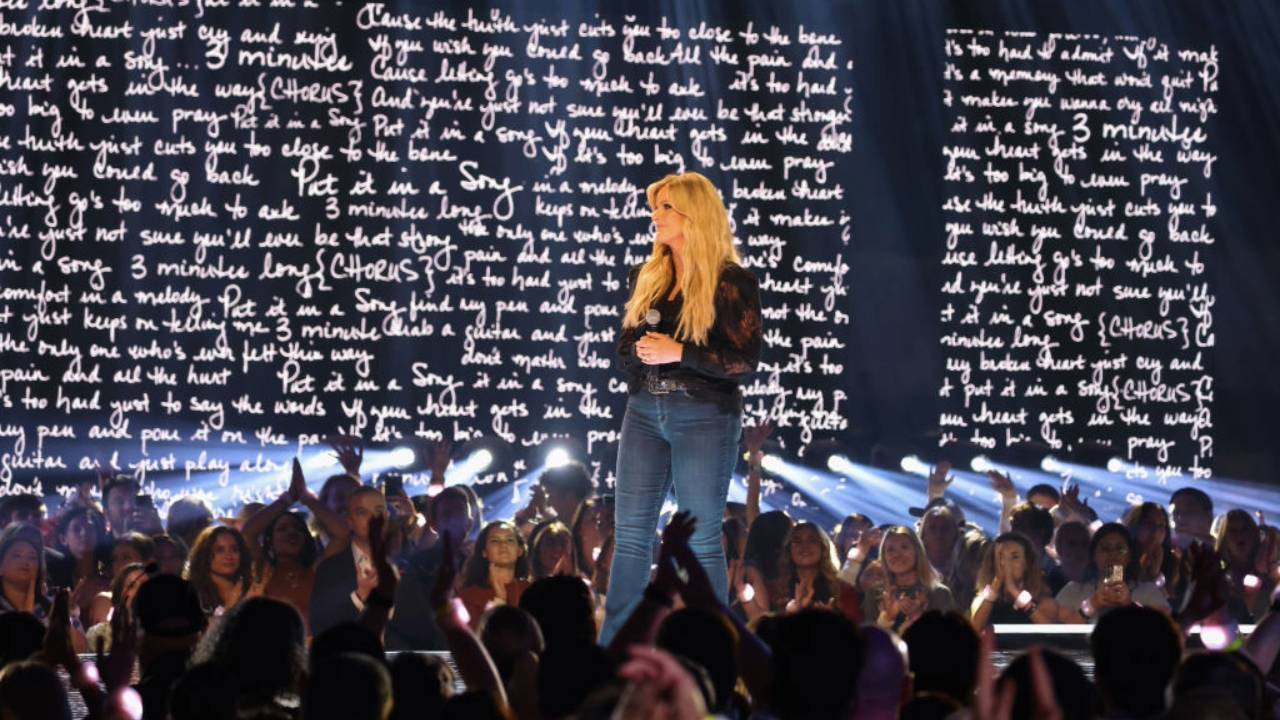It's Still 'Murder on Music Row,' Songwriters Complain Shell, Cordle Unfazed by Award Nominations
Larry Shell and Larry Cordle's "Murder On Music Row" is not simply a lament about the changing sound of country music. It's an outcry as well against the way the country music business operates these days.
Even though "Murder" is up for both song and vocal event of the year at The 34th Annual CMA Awards tonight (Oct. 4), the two songwriting buddies alternate between gloom and outrage as they view their profession.
"It used to be fun," Cordle says, repeatedly decrying the music industry's loss of openness and intimacy.
"We actually noticed [the spurning of traditional country music] around 1994 or '95," Shell recalls. "We noticed that our country songs were not being accepted very well. A&R people were starting to call us back and using the phrase 'too country.' So I guess the song was written out of that frustration. We didn't expect any of this."
Shell and Cordle wrote "Murder on Music Row" in June 1999. Shell then took Cordle's unidentified demo of the song, wrapped in crime-scene tape, to Nashville disc jockey Carl P. Mayfield. "Carl P. responded in a way that's unheard of today," Shell says, his voice rising and dipping in revivalistic intensity. "He made a programming decision on his own without consulting anybody ... He decided to let his listeners see if [the song] was right. The first day he went on it, he played it seven times from beginning to end, and it jammed his phones."
George Strait heard of the song through his co-producer, MCA Nashville President Tony Brown, and then invited Alan Jackson to record it with him. In the meantime, Cordle had also recorded it with his bluegrass band, Lonesome Standard Time, and made it the title song on his first album for Shell Point Records.
Shell Point's owner and president, Randy Harrell, credits the song with helping launch the new label. "It has helped in [getting us] distribution. It's helped in getting the record label's name out for the acts that have followed. It has helped immensely. Fortunately, Larry's version went No. 1 on the Americana single and album charts and No. 1 on the bluegrass single and album charts before Strait's version was ever released." So far, Harrell reports, Cordle's album has sold around 20,000 copies and is now turning a profit.
(Jackson, who first jabbed at ersatz country music with "Gone Country" in 1994, takes another shot at the industry in his upcoming album with a self-penned cluster-bomb called "Three Minute Positive Not Too Country Uptempo Love Song.")
"Country music stands for something simple," Shell intones. "And now we've created something that's so complex and so serious that everybody's got this furrowed brow. Everybody's strained today in country music. I don't think it's meant to be that way. I don't think you can make great music when you're under that kind of pressure. I don't think you can make lasting music. You'll make disposable music, and that's basically what's being made here now since big business took over country music."
Adds Cordle, "I think corporations have homogenized this town, but artists cave too early, too ... If you do what the guy with the money tells you to do, you're not standing up for what you are ... I hope these new artists do well. They'd better on the front end. Because five years from now, nobody's going to remember who they are."
(It should be noted here that outside ownership is not a new phenomenon. From the earliest days of country music, most of the major country labels have been owned by companies not based in Nashville.)
So what's to be done with songwriters and artists who can't or won't adapt to modern country music? "What we need if contemporary country radio is going to continue in this path," Cordle asserts, "is some way to get paid for what we do. I'm not of the mind to start writing the kind of songs they're putting out, because I don't think I'd be very good at it. We need a chart [for our kind of music]. We need some radio people that's got some clout. And BMI, ASCAP and SESAC [the organizations that collect royalties for radio airplay] need to figure out how to pay us. If we can't make but $20,000 for a Top 5 record, so be it. I'll take it."
Both writers insist that in defending traditional country music's right to exist they are not putting down anyone else's music. Both admit, with evident glee, that they're fans of pop singer Celine Dion.
"It's unfortunate that Larry and I have to take sides on this," says Shell. "We're not bad people. We're not out to upset anybody. But you know what, I told him the other day, 'We're going to wear whatever they put on us. We've got to.' Am I for country music? Yes. But with the same breath I'll tell you this: I have nothing against Shania Twain or her records or the way she sees fit to make them. In fact, I've even liked some of them."
At this point, Cordle breaks in. "We like Celine Dion and Ralph Stanley. Now how do you like that? We like Larry Sparks and Keb' Mo'."
Cordle adds that he believes the current purveyors of country music are embarrassed by its roots. "They don't want us to be hillbillies anymore. I think it's wrong ... I believe they're ashamed [of traditional country music]. I think it conjures up ignorant people and hay bales, people that don't belong with the 'regular' people. Bullshit! Let them come to the IBMA [International Bluegrass Music Association convention] and see how many Ph.D.'s there are trying to learn how to play the banjo."
Cordle and Shell are also the co-writers (along with Betty Key) of Loretta Lynn's current true-to-heritage single, "Country in My Genes."
While they are happy -- if a bit puzzled -- about their CMA nominations, Cordle and Shell say that, in the current climate, even the prospect of winning is small comfort to them. "We'd trade any CMA award they could give us -- we'd give it back," Shell says, "if we could come back Thursday morning and the music business would be like it used to be."





